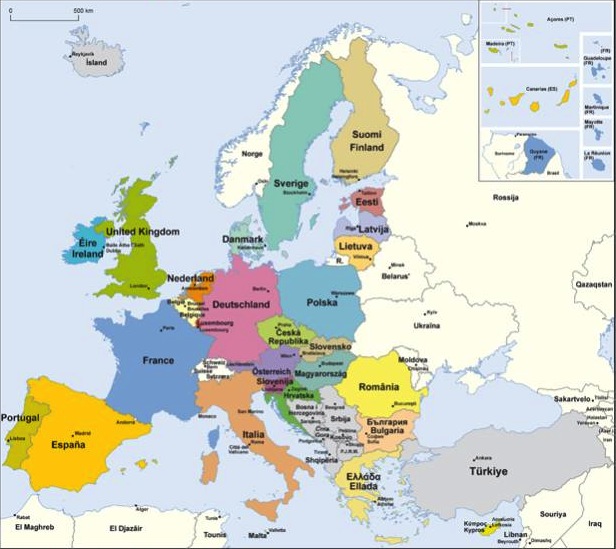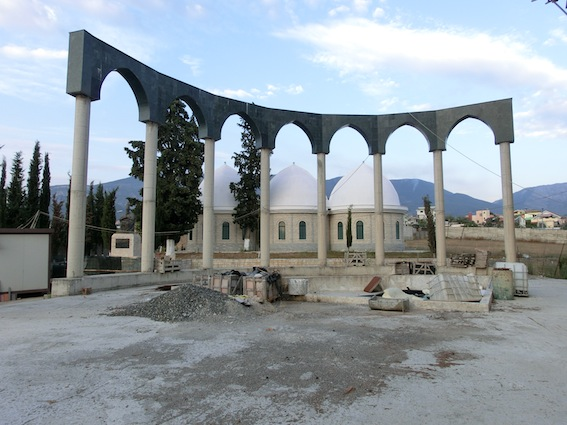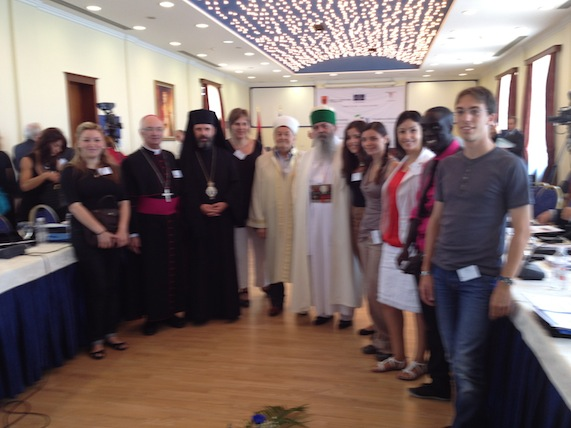James Barnett : Rapporteur : Group III : Dürres
I think that I have drawn the short straw, as they say, in having to produce a report in ten minutes. The other rapporteurs had a night to think about their contributions ! In any event, here goes.
The title of for the work of the group was :
”Responsibility of young people for the promotion of understanding, respect and dialogue: risks and potential in the representation of religions and non-religious convictions, in particular in the new media”
The main themes of the debate began with the good internet and the bad internet. The good internet referred to enabled and enabling youth, with reference to people less than twenty years old and a little older in some instances. They were born to the internet.
In the context of the good internet we find enabling and enabled youth. I think that must mean young people who can share useful information and who can use the information that they find as well.
Where there is a bad internet we were thinking of misguided or duped youth. They might misuse the internet or they might be bamboozled or just misled by what they find on it. As a consequence one of the roles of education is to teach people to discern. It is worth recalling the Council of Europe's project on the teaching of history, where students were asked to read documents and publicity, some of it propaganda, and to discern the ulterior aims and motives of seemingly innocuous material
Working in the context of the Council of Europe with its values - including universal values - we were asked to note that the internet does not transmit values but it does pass on knowledge. That is a kind of analysis of the limits of the usefulness of the internet which is an important contemporary tool. We would also want to ask about the capacity of the internet to explain conviction, while remembering that in many documents, for example the Brasseur report on The Religious Dimensions of Intercultural Dialogue the vocabulary refers more or exclusively to universal values and religious convictions.
We mentioned the internet as an unsatisfactory tool for research, because research requires particular skills and first hand investigation. We contrasted, say, Wikipedia and doing one's own research and asked about second hand research. Wikipedia may be an introduction but it needs to be checked.
Nevertheless it is possible to download many documents in, say, pdf or ePub format. Most obviously, one can download
works which are out of copyright
official documents,
good photographs of ancient manuscripts.
It was also noted that there is a lot of security and openness behind the keyboard, which means that people may "talk" more freely on the internet. That can be good but it is not the same as meeting of experts.
Reference was made to religious extremism and hate speech. They are all too readily available. Nevertheless there are networks of friendship and love. One contributor referred to contact with people whom one loves or visiting places that one loves with reference to the pulpit or sitting around the kitchen table. The web is a different kind of context.
Again, skills of interpretation are required. Those who use the internet need to be able to distinguish between the expression of opinion and the voicing of prejudice.
Because people talk freely behind a keyboard, there may be trivialised conversation. It is interesting to look at the varying quality of discourse on the social networks. Nevertheless the internet is a source of colossal amounts of information, not just from sites, but again through different networks.
Control of the internet remains an issue, with the implication that we might want to stop abuse or excess. Nevertheless, (relatively) free use of the internet was a primary cause of or support for the Arab spring.
We considered the concept of identity. In one sense we all need identity and there is a French term être bien dans sa peau which means to be well in one's skin. The implication is a certain security and integrity of personality. In that sense identity is a facility for the recognition of the other.
In another context or scenario, the internet can lead to what was termed "a lobotomy of identity". This kind of incompleteness may be a source of conflict and meeting on the internet is a particular kind of personal contact.
There is an issue of vocabulary of which the examples were in French. "Islamique" is an adjective of "Islam", but "islamiste" is pejorative in the sense that it tends to refer to kind of extremism. Nevertheless we do not have "juiviste" in respect of "juif" for Jews or "christianiste" in respect of "chrétien" for Christians. This could be significant.
What we need is education for human rights, with the implication that this contributes to the understanding of questions. They include both human rights and extremism - and so on !
An overarching principle could be the empowerment of young people so that they have influence that includes influence of the media. Four categories were proposed :
Young people as individuals
Youth NGOs
Religious NGOs
Young people as journalists.
The conclusion is that the issue is self-evidently complex. It is also important. Excessive freedom can lead to abuse, hate and so one, but excessive control, which curtails the right to freedom of expression, also prevents the kind of protest that we saw in the Arab Spring ...
James Barnett
12 September 2012
James Barnett
Commission Intereuropéenne
sur l'église et l'école



Groupe International Interculturel Interconvictionnel





